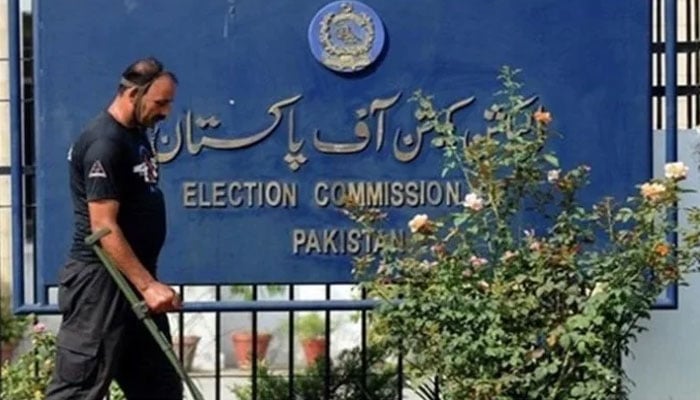ECP declares 93 MPAs as PTI lawmakers on SC order
93 MPAs — 58 from KP, 29 from Punjab and 6 from Sindh — declared as PTI members
The Election Commission of Pakistan (ECP) on Monday declared 93 members of provincial assemblies (MPAs) as members of the Pakistan Tehreek-e-Insaf (PTI) in accordance with the Supreme Court's July 12 order in the reserved seats case.
The development came days after the election watchdog declared 39 PTI lawmakers from the National Assembly as the candidates affiliated with the PTI.
These members — 93 from the provincial assemblies and 39 from the National Assembly — had shown their affiliation with the party in their documents submitted to the election commission ahead of the general elections.
Earlier today, the ECP uploaded the notification on its website, according to which, 29 PTI lawmakers from the Punjab assembly and 58 others from the Khyber Pakhtunkhwa assembly have been notified as the PTI's members while six MPAs from Sindh also have been declared as members of the PTI.
On July 25, the polls regulator sought the apex court's guidance on legal and constitutional aspects regarding the issue of the PTI lawmakers in the national and provincial assemblies.
The ECP, in its civil miscellaneous application, argued that it was facing difficulty in implementing the reserved seats order as the "PTI at the moment has no organisational structure for confirmation of the statements of MNAs and MPAs, purportedly belong to PTI".
The apex court, in its landmark ruling on July 12, declared the former ruling party eligible for reserved seats of women and minorities in the national and provincial assemblies.
These PTI members contested the February 8 elections as independent candidates and later joined the Sunni Ittehad Council (SIC) on the party's instruction in a bid to receive reserved seats as independents are not allowed under law to get reserved seats.
Ahead of the February 8 elections, the Supreme Court upheld the Election Commission of Pakistan (ECP) decision to deprive the party of its iconic 'bat' symbol, leaving the PTI without a status of a political party.
After winning the most seats in the elections earlier this year, the PTI was denied reserved seats by the ECP and this decision was also upheld by the Peshawar High Court (PHC), citing that the party could not submit the list of its candidates for reserved seats in the stipulated time.
Dismissing the ECP's verdict, the apex court had on July 12 ruled that "PTI was and is a political party" that won general seats in the national and provincial assemblies in the February 8 elections, thus, is entitled to reserved seats.
The SC full bench headed by Chief Justice of Pakistan (CJP) Qazi Faez Isa, by a majority of 8, set aside the Peshawar High Court's judgment of March 25 and declared the ECP order of March 1 to be ultra vires the Constitution, without lawful authority and of no legal effect.
Following the SC directives, the electoral body held multiple sessions to deliberate on the verdict and announced to execute the top court's ruling.
Faced with the possibility of the PTI becoming the largest party in the assemblies after it gets the reserved seats following the SC's order, the ruling coalition partners, Pakistan Muslim League-Nawaz (PML-N) and the Pakistan Peoples Party (PPP), filed a review petition in the apex court against the reserved seats' verdict.
-
Security forces gun down 30 terrorists in multiple IBOs in KP: ISPR
-
MQM-P calls for new province in Sindh
-
US report validates Pakistan military edge over India: PM
-
Banned TTP poses serious threat to Pakistan security: UNSC panel
-
CM Afridi clarifies remarks on by-poll after ECP requests army deployment
-
Dubai sees 3.2m Pakistani passengers in 2025 as airport sets new milestone
-
Security forces kill 23 Indian proxy terrorists in KP's Kurram
-
Pakistan to construct island to boost oil exploration: report












